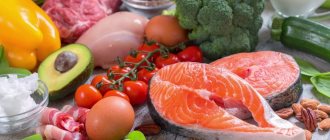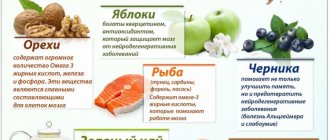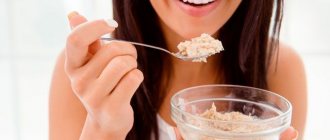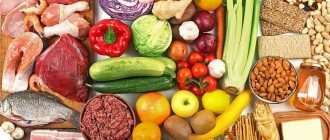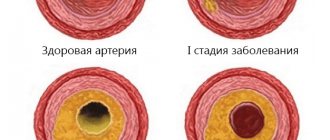Poor circulation can cause unpleasant symptoms such as pain, muscle spasms, numbness, digestive problems, and cold hands or feet (, , , , ).
In addition to those with poor circulation, athletes and physically active people may want to increase circulation to improve physical performance and recovery.
Although circulation problems are often treated with medications, eating certain foods can also improve blood flow.
Here are 14 of the best foods to improve blood circulation.
Products to improve blood circulation in the legs, pelvis, limbs, brain, etc.
Cayenne pepper
Cayenne pepper has a fiery taste due to a phytochemical it contains called capsaicin.
Capsaicin promotes blood flow to tissues by lowering blood pressure and stimulating the release of nitric oxide and other vasodilatory compounds ().
Vasodilators allow blood to flow more easily through your veins and arteries by relaxing the tiny muscles found in the walls of these blood vessels.
Research shows that consuming cayenne pepper increases blood circulation, improves the strength of blood vessels, and reduces the formation of cholesterol plaques in your arteries ().
Moreover, these hot peppers are often included in pain-relieving creams because they can stimulate blood circulation in the affected areas ().
Pomegranate
Pomegranates are a juicy, sweet fruit particularly rich in polyphenolic antioxidants and nitrates, which are powerful vasodilators (vasodilators).
Consuming pomegranate in the form of juice, raw fruit, or supplements can improve blood circulation and oxygenation of muscle tissue, which can especially help physically active people.
In a study of 19 physically active people, it was found that consuming 1,000 mg of pomegranate extract 30 minutes before exercise increased circulation, blood vessel diameter, and physical performance ().
Another study found that consuming 500 ml of pomegranate juice daily during or before strength training reduced muscle soreness, damage and inflammation in elite weightlifters ().
Onion
Onions are an excellent source of flavonoid antioxidants, which benefit heart health.
This vegetable improves blood circulation by helping your arteries and veins dilate as blood flow increases.
In a 30-day study of 23 men who received 4.3 grams of onion extract daily, there was a significant improvement in blood circulation and arterial dilation after eating ().
Onions also have anti-inflammatory properties that can improve circulation and heart health by reducing inflammation in the veins and arteries ().
Additional products for vascular health
The number of useful products is varied; they are easy to find in the store; they can be consumed in finished form or as part of special formulations.
- Honey and bee products. Honey provides the heart with energy and minerals, reduces blood density, and cleanses the walls of blood vessels from harmful deposits. Propolis tincture prevents the formation of blood clots, makes blood vessels more elastic, and prevents the accumulation of cholesterol. Propolis improves tissue healing in the cardiovascular system. When treating with honey, avoid eating other sweets.
- Nuts. Due to the presence of vegetable protein, minerals, vitamins, amino acids, the product is necessary for heart function and vascular health. Nuts maintain the elasticity of capillaries, veins and arteries, and provide nutrition to the heart muscle. Due to the high calorie content, it must be consumed in doses. The most preferred are walnuts and hazelnuts.
- Oils. Fresh flaxseed oil reduces blood glucose levels, normalizes cholesterol levels, prevents blood clots, and strengthens the walls of blood vessels. Olive oil contains fatty acids necessary for the prevention and treatment of atherosclerosis. Oils prevent the formation of blood clots and reduce the risk of stroke and heart attack. This or that oil can be added to vegetable salads or drink 1 spoon half an hour before breakfast.
Cinnamon
Cinnamon is a warming spice that has many benefits, including improving blood circulation.
In animal studies, cinnamon improved blood vessel dilation and blood flow in the coronary artery, which supplies blood to the heart.
Rats given 200 mg/kg of cinnamon bark extract daily for eight weeks showed improvements in cardiac function and coronary artery blood flow after exhaustive exercise compared to rats in the control group ().
Additionally, research shows that cinnamon can effectively lower blood pressure in people by relaxing blood vessels. This improves blood circulation, and keeps your heart healthy ().
In a study of 59 people with type 2 diabetes, 1,200 mg of cinnamon per day reduced systolic blood pressure (top reading) by an average of 3.4 mmHg. Art. in 12 weeks ().
TOP 10 products for healthy and beautiful teeth
TOP 10 products for healthy and beautiful teeth
1. Hard vegetables and fruits (carrots, apples, cucumbers, beets) Carrots, apples, cucumbers and beets contain many vitamins and microelements that are beneficial for teeth and gums, such as beta-carotene, vitamins B, D, E, K, C, PP, calcium, potassium, magnesium, sodium, phosphorus, iodine, fluorine, iron, cobalt and silver, which normalize blood circulation in the gums and supply calcium and phosphorus necessary for healthy teeth. Our teeth and gums become accustomed to soft, processed foods and stop functioning normally, resulting in plaque and poor circulation. Just a couple of hard vegetables or fruits a day - and your gums will be provided with a good massage, and your teeth will be free of deposits. In addition, such vegetables stimulate the secretion of saliva, which constantly washes the oral cavity and reduces the number of germs and bacteria.
2. Greens (parsley, lettuce, onion, dill, celery)
The composition of greens includes important not only for teeth, but also for the whole body as a whole, vitamins B, E, A, C, PP, potassium, calcium, magnesium, iodine, sodium, phosphorus, iron, beta-carotene and folic acid. Greens strengthen not only teeth, but also the immune system in general, help strengthen blood vessels, improve blood formation processes and eliminate bleeding from the gums. Parsley and onion have a natural antibacterial, refreshing and odor-eliminating effect, their juice penetrates into hard-to-reach places, whitens teeth, removes plaque, strengthens and massages gums.
3. Berries (currants, grapes, strawberries, cranberries)
The berries are rich in a unique combination of organic acids, pigments and pectins, and contain vitamins PP, A, group B, C, E, H, beta-carotene, calcium, magnesium, sodium, potassium, phosphorus, iron, iodine and fluorine. The juice of some berries is recommended to be used to prevent caries. For example, cranberry juice, due to its bactericidal effect, reduces the likelihood of caries. It is believed that the components of berry juices block bacteria from accessing tooth enamel. Grapes can also be used in the prevention of caries, because it contains a whole complex of minerals and trace elements that have a beneficial effect on teeth and gums. In addition, grapes contain substances that block the activity of pathogenic microbes in the oral cavity.
4. Nuts (almonds, pine nuts, cashews)
Nuts contain all essential amino acids, polyunsaturated fatty acids, vitamins A, B, C, D, E, P, as well as potassium, calcium, magnesium, phosphorus and other mineral elements that determine their high nutritional value. In addition, cashew nuts contain a unique substance that can destroy bacteria that destroy tooth enamel. It has antibacterial, antiseptic, tonic properties, and relieves toothache. Pine nuts contain vanadium, which promotes the development of bone tissue, phosphorus, which is involved in the formation and preservation of teeth and bones and plays an important role in the activity of muscles and nerve cells, calcium, which is the main component of bones and teeth and is necessary for blood clotting, cell integrity and cardiac activity. Almonds contain substances that improve the condition of teeth and gums; in addition, they have analgesic and antispasmodic effects.
5.Dairy products (cheese, cottage cheese, yogurt)
In addition to calcium, potassium, magnesium and vitamins A, B and D, which are beneficial for our body as a whole, dairy products also have a certain effect on teeth. Thus, yogurt reduces the amount of hydrogen sulfide, which is the main factor causing bad breath, quickly raises the pH level, and phosphates, calcium and casein help mineralize teeth. Cheese can be considered an effective means of preventing caries, because it increases the concentration of calcium in tooth enamel by 60% and increases the volume of saliva, which contains components that prevent the development of caries and gum inflammation. Cottage cheese contains proteins, lactic acid, iron and magnesium. It is well absorbed by the body, and the calcium and phosphorus salts that make up it are involved in the formation of bone tissue, nutrition of the nervous system and the formation of hemoglobin in the blood.
6. Citrus fruits (grapefruit, lime, orange) Citrus fruits necessarily include potassium, calcium, magnesium, sodium, phosphorus, iron, vitamins B, E, C, PP, which are so necessary for the body. Citrus aromas not only tone you up, lift your spirits, reduce drowsiness and increase attention and productivity, but also have a beneficial effect on teeth and gums. For example, eating grapefruit daily reduces bleeding gums and reduces the risk of inflammatory diseases of the oral cavity, and gum disease is the main cause of tooth loss. It is also recommended to eat lime, which helps prevent tooth decay and contains many substances beneficial for teeth and gums. Calcium and phosphorus contained in lime help enamel resist pathogens and caries, and gums improve the functioning of blood vessels and prevent bleeding. At the same time, lime contains organic acids, which, while having a slight whitening effect, do not corrode the enamel and do not destroy the natural microflora of the teeth and oral cavity. Contained in huge quantities of vitamin C in oranges, it maintains a healthy collagen network in the gums, which prevents the development of many dental ailments by destroying bacteria that cause tooth decay and gum inflammation.
7. Seafood (fish, shrimp)
From a nutritional point of view, seafood is considered an almost ideal food, because it is rich in microelements and vitamins, primarily calcium, phosphorus, fluorine, vitamins B1 and D, the insufficient presence of which leads to fragility of bone tissue, diseases of teeth and gums. These elements strengthen the health of the gums and promote the proper formation of teeth, improve complexion and hair health, and help the body strengthen the immune system. Shrimp contains calcium, thiamine, riboflavin, sodium, potassium, magnesium, phosphorus, iron and manganese that are easily absorbed by the body. The high content of calcium and fluoride affects the prevention of diseases of teeth and gums, because these minerals serve as a source for the construction of bones, the growth and preservation of teeth, the prevention of plaque formation and enamel destruction. Almost every type of fish is rich in calcium, selenium and fluorine, but the most valued is sea fish and other seafood, which, due to their high content of iodine and calcium, provide anti-caries protection for teeth.
8. Eggs (chicken, quail) A chicken egg contains proteins, fats, carbohydrates, 12 essential vitamins and almost all microelements. The vitamin D it contains is a source of phosphorus and helps prevent tooth decay, and eggshells are an ideal source of calcium, which is easily absorbed by the body, while medications such as calcium chloride, gypsum and chalk are poorly absorbed. By consuming crushed quail egg shells, you can get rid of bleeding gums and make your teeth strong and healthy.
9. Honey
Everyone knows that honey is good for health; it is not only a powerful source of energy and a means of boosting immunity, but also has a positive effect on dental health. Honey is especially rich in vitamins B and C, honey has antibacterial properties, has a general strengthening and rejuvenating effect on the body, and chewing wax honeycombs helps clean teeth and disinfect the oral cavity, effectively treats stomatitis and inflammation of mucous tissues. Propolis is used to treat periodontal disease, dental caries and gum inflammation; according to scientists, it reduces the number of enzymes that help bacteria attach to the tooth surface. In addition, about a hundred elements have been found in propolis that provide dental protection.
10. Drinks (tea, water) Both black and green tea are very beneficial for teeth, due to the content of substances that stop the development of bacteria. The antioxidant catechin, which is part of the tea, kills bacteria that cause caries and bad breath, which means that by drinking a cup of tea after a meal, we freshen our breath and cleanse the oral cavity of bacteria, thereby protecting the gums and strengthening the teeth. Clean drinking water enriched with fluoride also has a positive effect on dental health. Fluoridated water strengthens tooth enamel and prevents the occurrence of caries, inhibits the formation and accumulation of soft plaque, suppresses the vital activity of microorganisms, which leads to a decrease in the accumulation of organic acids in the oral cavity. All these products will have a positive effect not only on your teeth, but also on the entire body as a whole. By consuming them daily, you saturate your body with vitamins and minerals that are good for your health. When your teeth and gums become strong and healthy, you will want to smile more often, which means a good mood and smiles in return are guaranteed!
Garlic
Garlic is well known for its beneficial effects on circulation and heart health.
Research shows that garlic—particularly its sulfur compounds, which include allicin—can increase tissue circulation and lower blood pressure by relaxing blood vessels.
In fact, diets high in garlic are associated with better flow-mediated vasodilation, an indicator of circulatory efficiency.
In a study of 42 people with coronary artery disease, those who consumed garlic powder tablets containing 1,200 mg of allicin twice daily for three months experienced a 50% improvement in arm artery blood flow compared to the placebo group () .
Fatty fish
Fatty fish such as salmon and mackerel are excellent sources of omega-3 fatty acids.
These fats are especially beneficial for circulation as they promote the release of nitric oxide, which dilates blood vessels and increases blood flow ().
Omega-3 fats also help inhibit the clumping of platelets in your blood, a process that can lead to blood clot formation ().
Moreover, fish oil supplements are associated with a reduction in high blood pressure and improved skeletal muscle circulation during and after exercise.
For example, in a study of 10 healthy men, high doses of fish oil—4.2 grams per day for four weeks—significantly improved blood flow to the legs after exercise ().
Top 10 products
Many common foods contain a set of vitamins, minerals and other beneficial substances that cleanse blood vessels, increase blood flow, improve the functioning of the heart muscle and thereby normalize blood circulation. Such food should prevail on the table of people engaged in mental work.
Fish and seafood
Sea fish and seafood are valuable not only for the presence of animal proteins, which are easily digestible. Even if seafood is consumed only once a week, iodine, Omega 3 organic acid and other beneficial substances have a serious effect on brain activity, since they:
- occurrence prevents blockage of blood vessels;
- cleanse the walls of the arteries from existing cholesterol plaques;
- Omega-3 acids are good for the brain, as they are necessary for cell membranes;
- antioxidants prevent the oxidation of brain fat cells, that is, prolong their youth and prevent destruction;
- prevent the development of Alzheimer's disease and other manifestations of dementia;
- improve all mental operations by helping the passage of electrical impulses in the brain.
All these food products are indispensable for those who are focused on intellectual work , who have to remember and process a large amount of information, who already have manifestations of atherosclerosis and cerebrovascular accidents.
Oatmeal
All whole grain cereals are beneficial for cerebral circulation in one way or another. They have a rich composition of minerals, they contain vitamins, vegetable proteins, which help maintain the correct composition of the blood and the normal state of the bloodstream.
But oatmeal is especially useful as a remedy that helps with poor blood circulation in the brain.
Regular consumption of porridge made from this cereal has a beneficial effect on brain function and the state of the cardiovascular system.
Tomatoes
This vegetable contains vitamins, minerals, pectins, sugars, and organic acids. But its most important advantage is the presence of lycopene. This is a carotenoid that has a unique property: it can break down fats.
Lycopene is also an excellent antioxidant that actively:
- destroys free radicals, that is, fights aging;
- improves cholesterol metabolism;
- increases the permeability of the bloodstream, preventing the formation of blood clots and blood clots;
- strengthens arteries, veins and capillaries;
- normalizes the activity of brain cells, saturating them with oxygen.
It is noteworthy that lycopene from tomatoes not only improves blood circulation and prevents the appearance of atherosclerosis, but also reduces the risk of cancer problems many times over. Just two tomato dishes a week - and the likelihood of cancer is reduced by 30-35%. And two glasses of tomato juice a day for 1-2 weeks will significantly improve the condition of blood vessels.
Lycopene not only is not destroyed by heat treatment, but by changing its formula, it is even 2.5 times better absorbed than from raw tomatoes. Especially in tomato pastes and salads such as lecho with the addition of vegetable oil.
Garlic
Vitamins, minerals, organic acids, phytoncides, phytosterols, bioflavonoids have a very wide spectrum of action and are equally highly valued.
Garlic is especially useful for the brain because it contains selenium and, after grinding, produces allicin, a substance that imparts a specific bitterness and has a positive effect on:
- quality blood composition;
- blood thinning, dissolution of clots, cholesterol and other deposits on the walls of blood vessels;
- elasticity of vascular walls;
- improved blood circulation, including in brain tissue.
You can also make medicinal tinctures from garlic. Detailed recipes here.
Cabbage
White, cauliflower, red, Brussels sprouts, and broccoli are equally suitable for the brain. Phosphorus, calcium, other minerals and vitamins, polyphenols in cabbage:
- have a positive effect on the composition of the blood, reduce its fluidity;
- cleanse the blood and blood vessels, improving blood circulation;
- strengthen the walls of arteries and veins;
- normalize heart rhythms and stimulate blood flow.
Greens, leafy salads
Lettuce, spinach and almost all greens are known primarily for their high content of vitamin C. This is the best antioxidant, without which no organ can be healthy, especially the brain.
Its blood circulation also improves thanks to:
- calcium , which regulates blood viscosity, increasing its fluidity and preventing clots from forming;
- essential oils , microelements that normalize blood circulation in all types of vessels.
All kinds of greens should be present in the diet in abundance. One serving of lettuce per day for two to three weeks - and you will notice how chronic fatigue goes away, attention increases and memory becomes stronger. For other brain-healthy fruits and vegetables, see a separate article.
Grape
Berries are one of the first places among foods beneficial for cognitive functions. But grapes contain a special polyphenol - epicatechin.
Grapes are extremely beneficial for the blood vessels of the brain. Both black and red grapes are beneficial.
In addition, the large amount of antioxidants in it makes grapes a must-have product in the diet of those for whom mental performance is important.
Unrefined vegetable oils
Unrefined, directly pressed oils are one of the most essential products for the brain.
They contain vital fatty acids that help the brain by:
- regulate the production of “bad” cholesterol by the liver;
- cleanse blood vessels from cholesterol plaques;
- renew the blood and maintain its correct composition.
Only unrefined vegetable oil can benefit the circulatory system and brain cells. Unrefined cold-pressed oil is ideal as a health product: it retains the maximum of substances beneficial to blood vessels and cell membranes.
bitter chocolate
Dark and bitter chocolate is one of the best ways to increase brain activity.
This product contains lecithin, theobromine, epicatechin, flavonoids and a large amount of fast carbohydrates, which, when consumed, instantly provide a lot of energy and increase intelligence. In addition, chocolate:
- dilates blood vessels in the brain;
- accelerates the thought process, improves the quality of other functions of the thinking organ;
- relieves vascular spasms, relieving headaches;
- helps the production of endorphins and serotonin, improving mood;
- eliminates symptoms of fatigue and overwork, compensates for the effects of lack of sleep.
The slightly bitter delicacy quickly tones up, increases attentiveness and concentration. People whose profession requires attentiveness, quick reaction, and good memory should always have it on hand as an emergency aid.
Nuts
Omega-3 and Omega-6 fatty acids, vitamins, especially vitamin E, and vegetable protein make nuts a very valuable product that improves brain activity.
Regularly eating a small handful of peanuts, hazelnuts, cashews, sesame seeds, pistachios, walnuts or almonds will help:
- thin the blood, preventing clots from forming in it;
- tone brain cells, giving them a lot of energy;
- slightly expanding the arteries, moving the blood flow of the required force;
- normalize cholesterol metabolism by regulating the production of “bad” cholesterol;
- improve function and enhance natural brain activity.
You can eat nuts with honey.
Also check out the infographic:
Now let's talk about foods that are harmful to normal blood circulation.
Beet
Many athletes drink beet juice or take beet powder to improve physical performance.
This is because beets contain high levels of nitrates, which your body converts into nitric oxide. Nitric oxide relaxes blood vessels and increases blood flow to muscle tissue.
Beet juice supplements improve oxygen flow to muscle tissue, stimulate circulation, and increase nitric oxide levels - all of which can improve physical performance ().
In addition to helping athletes, beets improve blood circulation in older people with circulatory problems.
In a study of 12 older adults, those who drank 140 ml of fresh beet juice per day experienced significant reductions in blood pressure, clotting time and blood vessel inflammation, compared to those who consumed a placebo ().
Turmeric
Improving blood circulation is one of the many benefits of turmeric.
In fact, both Ayurvedic and Traditional Chinese Medicine have used turmeric to dilate blood vessels and improve circulation since ancient times ().
Research shows that a compound found in turmeric called curcumin helps increase nitric oxide production, reduce oxidative stress, and reduce inflammation.
In a study of 39 people, taking 2,000 mg of curcumin per day for 12 weeks resulted in a 37% increase in blood flow in the forearm and a 36% increase in blood flow in the upper arm ().
Green leafy vegetables
Green leafy vegetables such as spinach and greens are rich in nitrates, which your body converts into nitric oxide, a powerful vasodilator.
Eating nitrate-rich foods can help improve circulation by widening blood vessels and allowing your blood to flow more easily.
In a study of 27 people, those who consumed nitrate-rich (845 mg) spinach daily for seven days experienced significant improvements in blood pressure and circulation compared to the control group ().
What's more, studies have shown that people who eat a traditional Chinese diet, which includes nitrate-rich vegetables such as Chinese cabbage, have lower blood pressure and a significantly reduced risk of developing cardiovascular disease compared to those who eat a typical Western diet ( ).
Citrus fruit
Citrus fruits such as oranges, lemons and grapefruit are rich in antioxidants, including flavonoids.
Consuming flavonoid-rich citrus fruits can reduce inflammation in your body, which can reduce blood pressure and stiffness in your arteries while improving circulation and nitric oxide production ().
In a study of 31 people, those who drank 500 ml of orange juice per day for one week had significant improvements in artery dilation and significant reductions in inflammatory markers such as IL-6 and CRP compared to the control group ().
Additionally, regular consumption of citrus fruits, such as lemon and grapefruit, is associated with lower blood pressure and a reduced risk of stroke (,).
Beverages
Drinks consumed in everyday life can be an excellent preventive measure for vascular diseases. Let's also consider the features of drinking alcohol for medicinal purposes.
- Coffee. Able to constrict blood vessels in the brain and abdominal cavity, and expand muscles. With reduced blood pressure, it improves blood flow, eliminates swelling of the legs, and relieves pain from angina pectoris. If you have high blood pressure, strong coffee is dangerous. For atherosclerosis, a high-quality instant drink is indicated, since when cooking a natural drink, substances appear that contribute to the accumulation of cholesterol on the vascular walls.
- Green tea. The benefits of the drink are controversial due to the large amount of caffeine in the composition. However, drinking 2 cups a day will not cause harm. Tea lowers cholesterol levels, smoothly cleanses the walls of blood vessels, and tones.
- Dry red vintage wine and cognac. When consumed in small quantities, drinks dilate blood vessels, prevent the formation of fatty deposits in their lumens, dissolve accumulated ones, and preserve the youth of the circulatory system. Table or sweet wine, on the contrary, increases blood pressure and is not beneficial. Cognac is useful only in a dose of 30-50 ml; exceeding the volume can be harmful.
Walnuts
Walnuts are rich in beneficial compounds such as L-arginine, alpha lipoic acid and vitamin E, which stimulate the production of nitric oxide.
Eating walnuts may lower blood pressure, improve blood vessel function, and reduce inflammation, which may be especially beneficial for people with diabetes ().
People with diabetes often have circulatory problems and high blood pressure due to damage to blood vessels caused by uncontrolled blood sugar levels ().
In a study of 24 people with diabetes, those who consumed 56 grams of walnuts per day for eight weeks experienced significant improvements in blood flow compared to the control group ().
What should you avoid?
Along with healthy food, you need to remember the risk, on the contrary, of clogging the blood vessels of the brain, harming it due to incorrectly selected products.
Increased blood pressure, signs of atherosclerosis, fatigue, poor sleep and daytime sleepiness will be ensured if the following foods are constant in the diet.
- Fatty meat, poultry, red meat. This food inevitably leads to the saturation of the blood with harmful substances that thicken it. Excess animal fats also harm blood circulation.
- Fried food. Any, even healthy, fried foods acquire additional amounts of fats and carcinogens, which is directly related to blood clogging and deterioration of blood supply.
- Semi-finished products, smoked meats, sausages, fast food. It is difficult to find products more harmful to the blood and blood vessels. They not only contain a lot of salt and fats, often of poor quality. They are replete with preservatives, taste improvers and other chemicals that clog the bloodstream.
- Fatty dairy products. It is useless to consume low-fat kefir, cottage cheese and milk: they do not bring any particular benefit, since many useful substances are not absorbed without the required amount of fat. But excess fats are deposited on the mucous membrane of the walls of blood vessels and impede blood flow. Find out more about healthy dairy products here.
- Sweets, cookies, baked goods. Excess refined sugar, trans fats, and modified foods can seriously affect the quality of the blood, and therefore immediately the blood supply to the main vital organ. Read more about the effect of glucose on the brain here.
Tomatoes
Tomatoes may help reduce the activity of angiotensin-converting enzyme (ACE), which causes blood vessels to constrict to control blood pressure ().
Research shows that tomato extract works similarly to ACE inhibitors - dilates blood vessels and improves circulation.
Test-tube studies note that tomato extract may inhibit ACE, reduce inflammation, and inhibit platelet aggregation, which may improve blood circulation (, ).
Berries
Berries are particularly beneficial for health - they have antioxidant and anti-inflammatory properties, which can have a positive effect on blood circulation.
Chronic inflammation can damage blood vessels and raise blood pressure, which can cause circulation problems.
Research shows that eating berries may reduce blood pressure, heart rate, platelet aggregation and levels of inflammatory markers in the blood such as IL-6, as well as improve the dilation of arteries ().
Ginger
Ginger is a staple medicine used in traditional medicine in India and China for thousands of years. Among its various benefits, ginger can lower blood pressure and improve blood circulation ().
In both human and animal studies, ginger has been shown to reduce high blood pressure, which negatively affects circulation ().
A study that looked at 4,628 people found that those who consumed the most ginger (2-4 grams per day) had the lowest risk of developing high blood pressure ().
Animal studies show that ginger works by inhibiting ACE ().
Blood thinning for coronavirus
Advertising:
According to studies conducted in France and the Netherlands, approximately 20-30% of severely ill patients diagnosed with COVID-19 have thrombosis. Scientists have put forward several theories indicating the reasons for such changes in the blood, but there is no concrete evidence yet. However, anticoagulants are already beginning to be introduced into therapeutic regimens. If necessary, patients undergoing home treatment are also given instructions on how to thin the blood in the human body during coronavirus.
If blood clotting is high, including due to coronavirus infection, there may be a need for thinning agents. But you should not take medications without a doctor’s prescription. As a preventive measure, certain foods that have anticoagulant properties can be identified:
- raspberries;
- tomatoes;
- ginger root;
- cottonseed, linseed or olive oil;
- persimmon;
- seaweed;
- garlic;
- sea fish;
- citrus.
Nutritionists recommend avoiding certain products on the menu if you have increased blood clotting. This group includes buckwheat, corn, bananas and cabbage. It is also worth limiting the consumption of walnuts, rowan berries, and nettles. All of these products can affect the blood, increasing its thickness and coagulability.
Other methods
While including any of these foods in your diet can improve circulation, other lifestyle changes may have a greater impact.
Here are some other lifestyle changes that can optimize circulation:
- Smoking cessation : Smoking is a risk factor for many chronic diseases such as cancer and can negatively affect blood circulation ().
- Increase physical activity : Physical activity stimulates blood circulation and helps improve the dilation of blood vessels. In addition, regular exercise or other active activities, such as dancing and swimming, reduce the risk of cardiovascular disease ().
- Lose excess body weight : Being overweight or obese negatively affects your blood circulation and can lead to dangerous complications such as the formation of cholesterol plaques in your arteries ().
- Healthy Diet : Instead of just eating certain foods, try switching to a diet rich in healthy, whole foods such as vegetables, healthy fats and fiber-rich foods, which can improve circulation.
- Drinking enough fluids : Proper hydration is critical to all aspects of health, including circulation. Dehydration can damage endothelial cells and promote inflammation in your body by limiting blood flow ().
- Reduce Stress Levels : Research shows that stress levels can significantly affect your blood pressure. Stress control can be achieved through yoga, meditation, gardening, or spending time in nature ().
Summary:
A healthy diet, exercise, losing excess body weight, quitting smoking, drinking enough fluids and reducing stress are natural ways to improve blood circulation.
Other Important Recommendations
Organizing the correct nutrition for the cardiovascular and circulatory system will help normalize cerebral circulation. But there are many additional ways to help the body improve the supply of oxygen and nutrients to brain cells.
- Physical activity and sport. Without a sufficient amount of physical activity, it is impossible to maintain normal functioning of the heart muscle and maintain normal blood circulation. The brain primarily senses a lack of oxygen and nutrients when normal blood flow is disrupted.
- Massage of the collar area and the whole body. A sedentary lifestyle and the occurrence of osteochondrosis have a very negative impact on well-being and mental activity. Massage, and even self-massage, can greatly ease things by increasing blood flow to the brain.
- Walks in the open air. An additional flow of oxygen into the blood, combined with walking, improves blood circulation and supply to the brain.
- Ventilation of premises. In a closed room, the amount of oxygen is insufficient. This creates additional problems in the access of oxygen to brain cells. Ventilation alleviates this problem to some extent.
- Convenient workplace. When working sedentarily, it is especially important that the chair is as comfortable as possible, allowing you to occupy a physiologically comfortable position that does not interfere with blood flow.
- Sleep hygiene. During a night's rest, it is important to create conditions for complete relaxation in a comfortable position. This will help not to disrupt the blood circulation in the brain.
- Sufficient fluid intake. Blood that is too thick has difficulty passing through the bloodstream. First of all, the brain suffers from dehydration, which, moreover, consists of 80% water. Drinking at least 2 liters of fluid per day will help avoid dehydration and poor circulation.
Summarize
- There are many natural ways to improve circulation, including choosing foods that stimulate circulation.
- The antioxidants, nitrates, vitamins and other substances found in the above foods can have a positive effect on your circulation.
- Moreover, a healthy lifestyle, abstaining from smoking, physical activity, maintaining a normal body weight and a healthy diet can improve blood circulation and overall health.
The article was prepared by experts for informational purposes only. It should not be used as a guide for treating medical conditions and is not a substitute for professional medical advice, diagnosis, or treatment. In case of illness or any symptoms, you should always consult a doctor and not self-medicate.
Tags: Blood circulation
About the author: Anastasia Sheveleva
Candidate of Medical Sciences, doctor of the highest category, therapist, registered dietitian, nutrition consultant. More about the author.
- Related Posts
- What is the best time to eat dates?
- What is lactic acid fermentation and is it beneficial?
- Can you eat bacon raw?
« Previous entry
Foods that thin the blood
We provide a list of the most effective products below.
horse chestnut
. The peel of the chestnut fruit contains substances that reduce the formation of clots and improve the condition of the vascular wall. 100 g of clean chestnut peel should be poured with a liter of vodka. The container is hermetically sealed.
wheat sprouts
. The content of a large amount of vitamins and substances that improve the properties of blood cells makes sprouted wheat grains extremely useful for people with problem blood vessels.
Osteoporosis is second only to pathologies of the cardiovascular system, diabetes and cancer in terms of incidence. It is observed mainly in women during menopause, but in other categories of people it is also often recorded. Read more in the article: “drugs for the treatment of osteoporosis.”
Raspberries
. Everyone knows the use of raspberry tea for colds. The effect is in natural aspirin contained in aromatic berries. It is best to eat raspberries, fresh or frozen, in the evenings.
Garlic and onion
. Phytoflavonoids, which contain garlic and onions, can thin the blood when consumed regularly. Garlic can be consumed as a mixture with honey. To do this, mix 300 g of grated garlic and the same amount of honey. This combination, when consumed in a tablespoon up to three times a day, improves the condition of blood vessels and improves immunity.
Cranberry
. This berry is simply filled with vitamins. Vitamin C - ascorbic acid - is famous for its effect on the vascular wall, it makes it stronger and reduces the risk of blood clots - clots do not stick to a healthy wall.
